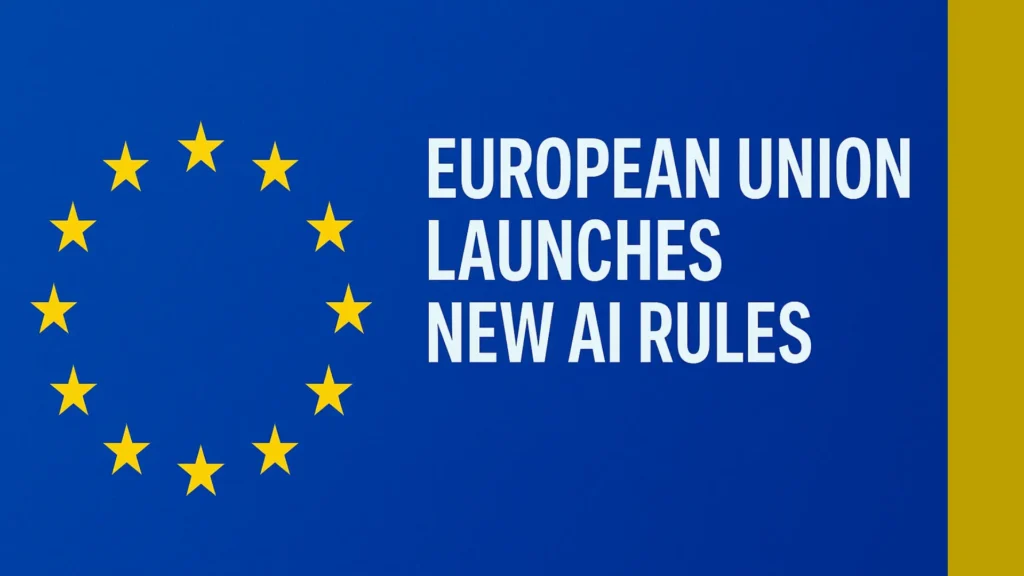
Introduces European Union New AI Rules to boost transparency; tech firms like Google back it, while Meta raises concerns over legal clarity.
The European Union (EU) has implemented some new guidelines regarding Artificial Intelligence (AI), which have been started in voluntary form for now. Their aim is that AI systems, such as tools like ChatGPT or Google Gemini, work with more transparency.
What is This European Union New AI Rules?
These rules have come into force from Saturday. Initially they have been introduced as a “code of conduct”. Although they are not legally binding yet, they include some important things:
- Companies should make it clear how their AI models work.
- Information should also be given on which data these models have been trained.
- Risks like bias and spreading misinformation should be assessed.
- And most importantly – the user should understand how the technology is working for him.
Companies have been given time to adopt this code, but the full European Union New AI Rules or AI Act is expected to be implemented by 2026.
Some companies are ready for european union new AI rules, some are hesitant
- Some big tech companies have accepted this code of conduct, while some have distanced themselves from it.
- Google announced on Tuesday that it will sign this code.
- Earlier, OpenAI and French AI company Mistral have also adopted it.
- But Meta (which is the parent company of Facebook and Instagram) has refused to sign it.
Meta says that the language of this code is not clear and there are some things in it which go beyond the existing framework of European Union New AI Rules or law.
The company’s senior official Joel Kaplan wrote in a post that this could create legal uncertainties for developers and may cause problems in working.
What is the concern of the companies?
Meta is not the only company that has raised concerns. Many other big companies in Europe have also raised some questions in this direction.
For example, companies like Airbus and Lufthansa have urged the EU to implement the rules with caution. They believe that this could leave the European technology sector behind in the global race.
Kenton Walker, who leads global affairs at Google, raised similar points of concern. He said that if the rules lead to the disclosure of trade secrets, or increase copyright related complications, then this could slow down the development of European AI models.
Yet the EU stands by its plan
Even with all the feedback and recommendations, the European Commission has maintained its stance. The compliance period that is starting from this weekend indicates that Brussels is serious about the rules related to technology.
They believe that if a rapidly changing technology like AI is not given direction in time, it can also be misused. Therefore, it is better to set some clear guidelines from the beginning.
Conclusion: European Union New AI Rules
This move of the European Union is being considered an important initiative towards global AI policy making. It will be interesting to see how other countries and tech companies adopt this.
In the future, as AI begins to influence our everyday decisions, regulations like these will probably become even more important.
Also Read: Top AI Headlines Today: Exclusive Global Updates & News




